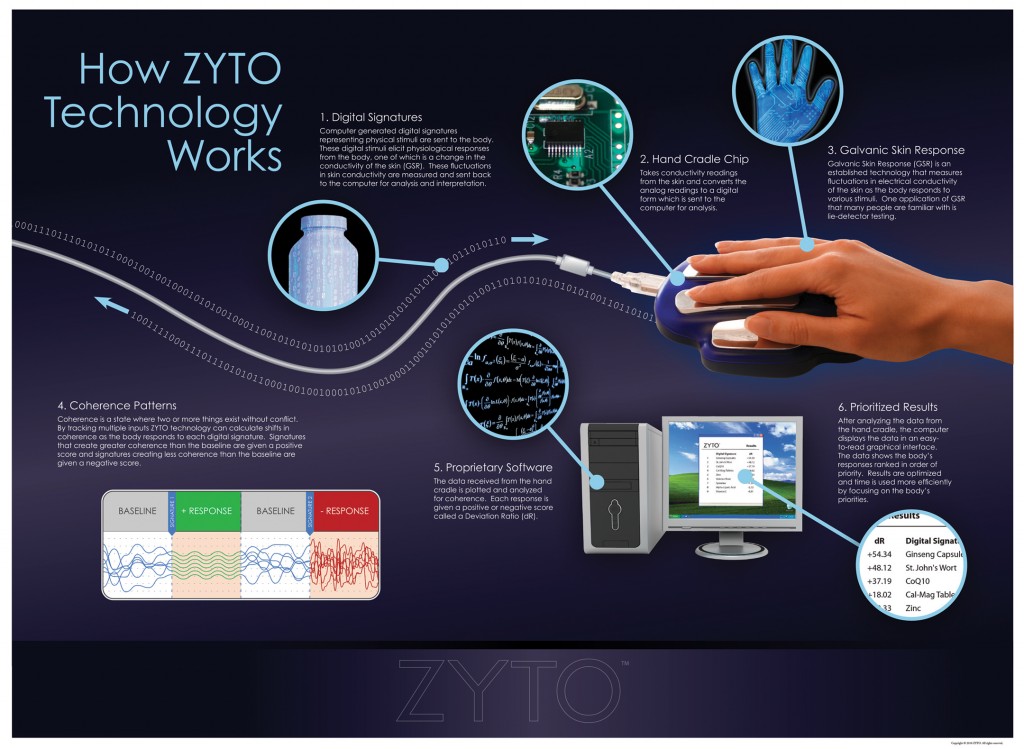Your body is energetically connected and constantly in communication with itself. The primary function of this communication is to maintain overall health and functionality. Bio-communication between your body and ZYTO software takes advantage of this and is a breakthrough method for ‘listening to’ and ‘communicating with’ your body.
The interface between your body and ZYTO’s bio-communication software is the FDA registered hand cradle. By interacting energetically with your body the ZYTO software will essentially ‘ask your body questions’ and record your body’s responses or ‘answers’. Your body responds energetically by a galvanic skin response or GSR. ZYTO measures complex GSR patterns and determines shifts in your energetic posture. Although a few people may be able to sense this energetic communication, most are unaware that the scan is taking place.
When your body encounters a health challenge, it uses these communication pathways to make adjustments and redirect available resources to restore health and balance. In most instances, other than feeling a little tired, you probably will never know that there was ever an issue.
When your body encounters a bigger health challenge, you may show symptoms. Symptoms are the outward expression of your body’s best efforts to deal with a disease or disease process. Common symptoms include elevated body temperature, swelling, pain, tiredness or a cough. These all happen for a reason and they indicate that your body is working on a health challenge. When you recognize these symptoms you can consciously assist your body with healing by taking action that is supportive of its efforts to restore balance and health; things like getting more sleep, drinking more water, or taking medication to relieve the symptoms.
Too often, we only pay attention to our health when we recognize outward symptoms. As a result, most of our healthcare focuses on dealing with problems after they’ve become significant enough to be symptomatic, rather than providing our bodies with the support they need day-to-day as they deal with problems that are ‘little.’










